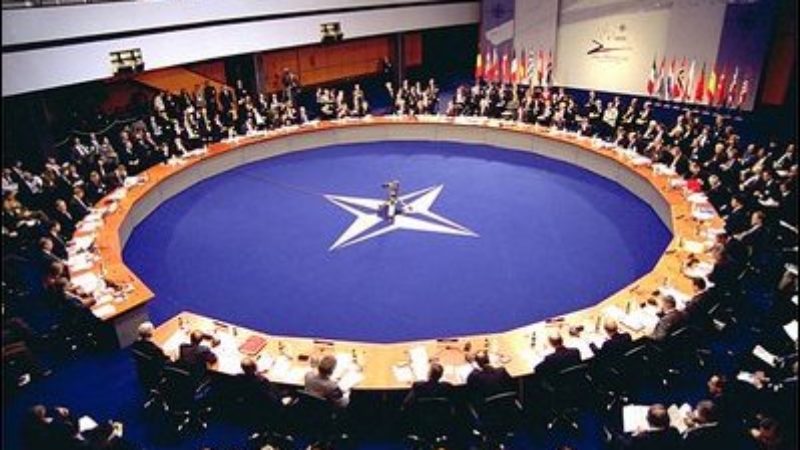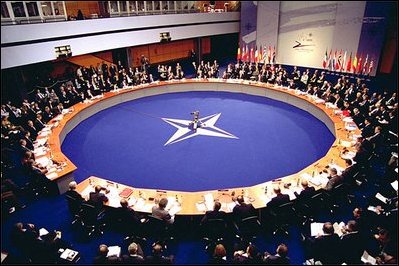

One of the reasons I find it hard to celebrate the new anti-establishment zeitgeist in Western politics is that so many of the embattled institutions are actually based on fundamentally progressive values.
Whether it is the European Union with its four freedoms, Nato’s commitment to the mutual defence of small democracies by their stronger partners or the European Convention on Human Rights – the institutions of the post-war world are largely based on principles that restrain arbitrary power and promote democracy and human rights.
One of the greatest embodiments of this progressive slant in the international order is the doctrine of the Responsibility to Protect (R2P) adopted in 2005 by the Labour government and all other UN member states. These states promised to protect their populations from “genocide, war crimes, crimes against humanity and ethnic cleansing”, and agreed to “encourage and assist states in fulfilling this responsibility” using “appropriate diplomatic, humanitarian and other means”.
The idea of R2P is a simple one – that we all have a duty to protect civilians from barbarism and war crimes – but the consequences are radical, recognising that powerful countries owe a duty of protections to defenceless civilians wherever they might be found. Far from being an “invader’s charter” as is sometimes alleged, R2P is a deeply progressive idea.
The brutal reality of the international law is that it only exists to the extent that it is enforceable. As we are seeing in Syria, if a murderous dictator knows there will be no consequences for war crimes then international law can be shredded at will. Our solidarity with our fellow human beings, codified in R2P, should be a cornerstone of a progressive, rules-based international order in which arbitrary power is constrained and human rights are protected.
Crucial to the idea of R2P is the argument that there is nothing inherently progressive about non-interventionism. If the consequence of inaction, the cost of doing nothing, is genocide, then those with the capacity to prevent such atrocities must be responsible for doing so. The trend towards isolationism – driven partly by fiscal considerations, partly by ideology and partly by voters who are tired of foreign adventures – risks undermining the very fabric of this progressive consensus.
The tragic consequences of this can be seen in Syria today where the collective inaction of the international community has resulted in the abandonment of the Syrian people to the savagery of Assad and his allies.
The other important facet of R2P is the broadening of the idea of what a “humanitarian intervention” means in practice. Far from humanitarianism simply being about water bottles, tents and aid drops, what is envisioned in R2P is a comprehensive strategy to protect civilians, uniting diplomatic, military options, political rebuilding and statecraft with more traditional humanitarian efforts.
It is not enough simply to argue for “bread not bombs” while doing nothing to address the real cause of the suffering in scenarios in which war and political instability are the main problems.
So I believe that progressive humanitarianism relies on a rules-based international order, with clear consequences for violations, enforced by those with the capacity to do so, with the protection of civilians as the goal and the means being whatever is most effective in saving as many lives as possible.
This is what was agreed in 2005, the challenge lies in creating the will to make this commitment a reality. This requires work both at home and abroad.
At home those who believe in humanitarianism must work harder make the argument to the public that humanitarianism is not only good in itself but that it is in our direct interest to preserve the rules-based system, stop refugee flows and foster stability across the globe. Abroad we must put pressure on our allies to summon the resolve to act, much as the Labour government made the case for intervention in Kosovo to a sceptical American president.
Acts of leadership, showing that we stand ready to honour our commitments, will be vital in making this case.
Today the progressive rules and commitments forged over the last few decades look more precarious than they have since their inception. Fighting to reassert these humanitarian principles will not be easy but the alternative is that they crumble entirely, giving way to a brutal free-for-all where the strong prey on the weak and innocent civilians pay the price. For the sake of those who depend on us, we cannot allow that to happen.
Alison McGovern will be speaking at the Fabian Society new year conference tomorrow.



More from LabourList
Exclusive: Poll shows Starmer more trusted than PM on Middle East crisis
Revealed: Poll shows 1 in 4 Tory voters says Rayner faces ‘smear campaign’
‘Ignore the noise – the soft left is alive and well in Open Labour and beyond’